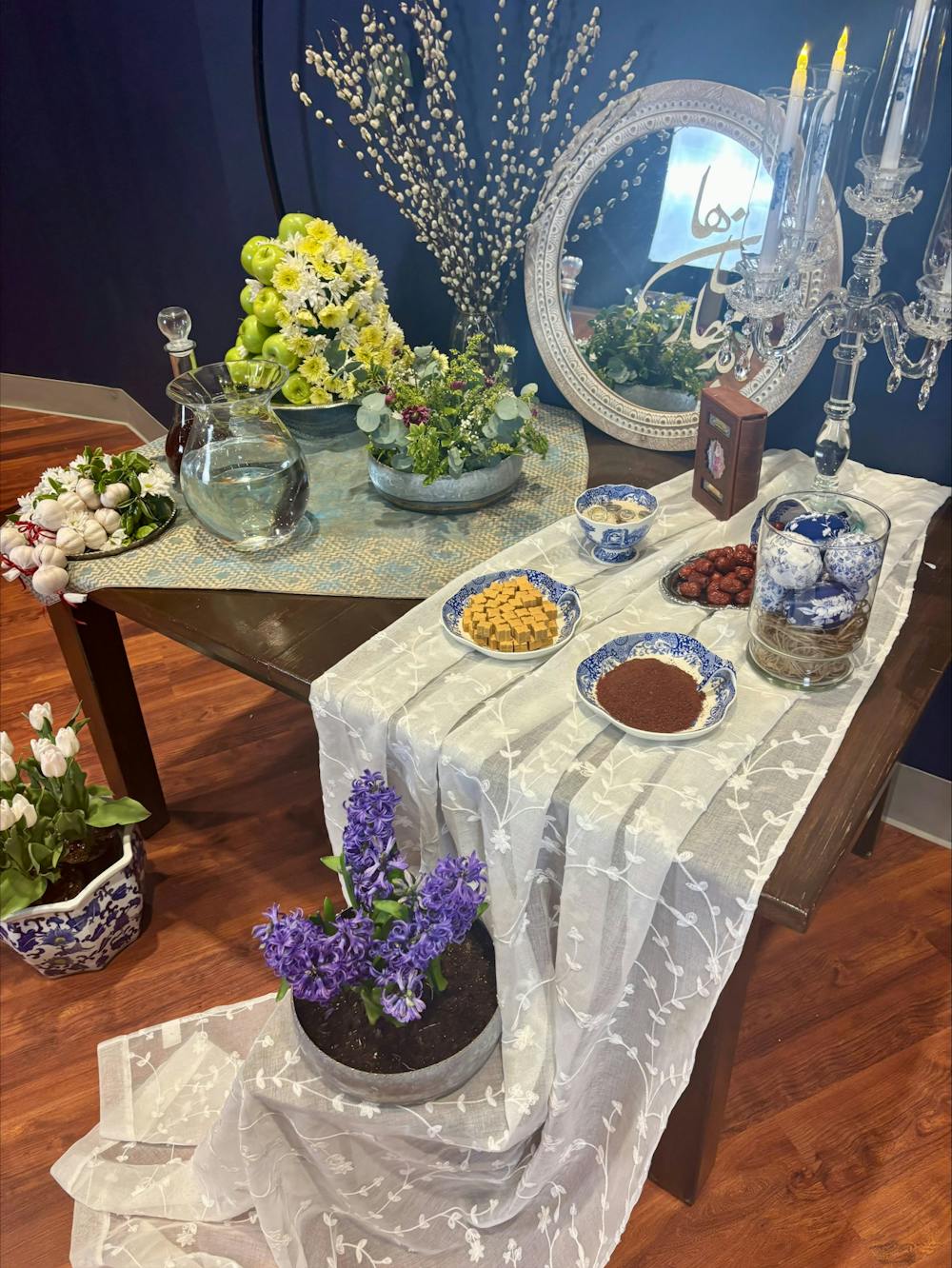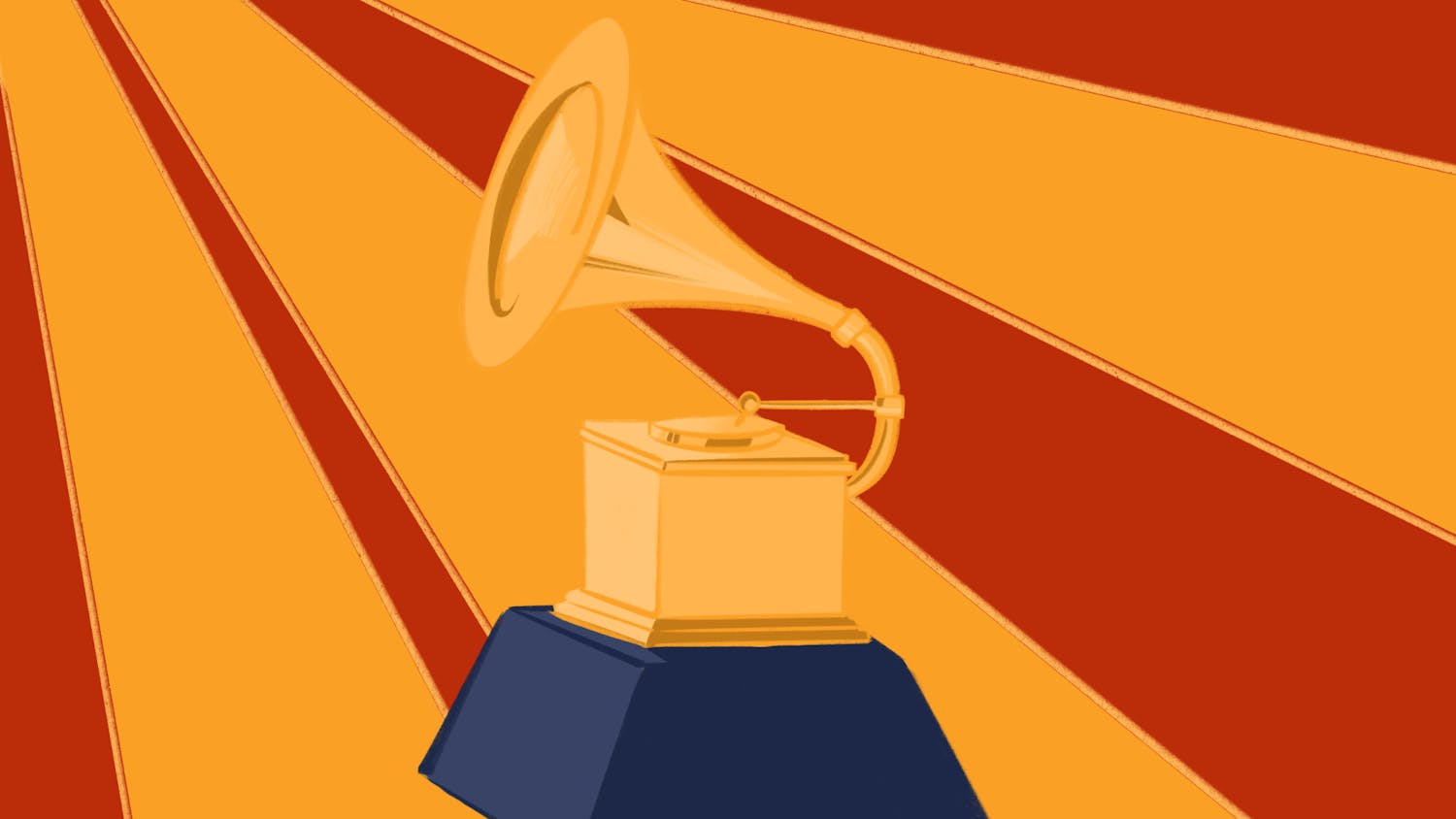On Saturday, March 29, Auburn University’s Iranian Student Association hosted its annual Nowruz Celebration in the Student Activities Center. This year, the ticketed event for all ages had an attendance of over 140 people, comprised mainly of members of the IRSA, their families, friends and Persian community members.
Nowruz, the Persian New Year, is an ancient holiday among the oldest in the world, dating back to the Zoroastrian period. It celebrates the ringing in of a new spring season and a chance to clean out negativity and clutter within one's personal life.
“Nowruz is a festive and culturally rich occasion that celebrates the arrival of spring and the Persian New Year,” said Hossein Jahromi, professor in biosystems engineering at Auburn.
Jahromi has served as an IRSA faculty advisor for three and a half years, which he described as “a great privilege.”
Before dinner, attendees had ample time to greet each other and choose their seating for the night. Table decor included white eggs, which symbolize fertility, and colorful markers to decorate them.
A photo-op was available in the form of an elaborately decorated table with the Haft-Seen. The Haft-Seen are the seven symbols of Nowruz, which include vinegar, pudding, dried fruit, sprouts, sumac, garlic and apple. These symbols represent rebirth, growth, power, strength, love, patience and other ideal qualities that those celebrating strive to embody.
Due to a lack of authentic Persian food options in Auburn, food for the IRSA’s event this year was catered from a restaurant in Atlanta. The menu included a special eggplant dip called kashke bademjan, which blends spices, aged yogurt and eggplant.
Alongside the kashke bademjan were koobedeh and chicken kabobs, Persian rice, salad and baklava. The food quickly disappeared as those celebrating Nowruz sat down to enjoy the meal.
Roman Coulter, freshman in neuroscience, learned about the IRSA after attending a cultural dining night at the Edge Dining Hall and meeting Jahromi at the Auburn University Recreation and Wellness Center. He attended this year’s Nowruz celebration with his family, including his mother, who was born in Iran and provided from personal experience with the country’s holiday traditions.
After dinner, Coulter gave a presentation to attendees that described Nowruz as “a time of renewal and joy.” Coulter continued to present on Chahrshanbeh Sori, the Persian Festival of Fire, which takes place before Nowruz, and Sizdeh Bedar, which occurs on the thirteenth day. Towards the end of the night, dancers took the stage to entertain the crowd, performing choreography to cultural music while dressed in colorful costumes.
Maddie Spoor, junior in biosystems engineering and music, heard about the Nowruz celebration from an Iranian coworker. This was her second year in attendance.
“I enjoyed the celebration because it allowed me to learn about traditions different than my own and to learn more about the cultures of my peers and friends. It’s also a really fun celebration with all the food, fellowship and dancing,” Spoor said.
Nowruz is the Iranian Student Association’s largest event of the semester and a great opportunity for the community to get involved in celebrating diverse cultures with Auburn students. A list of the IRSA’s other signature events can be found on AUInvolve. Prospective members are encouraged to join the association at any time to join in their goal of facilitating cultural understanding and awareness and building community.
Do you like this story? The Plainsman doesn't accept money from tuition or student fees, and we don't charge a subscription fee. But you can donate to support The Plainsman.





